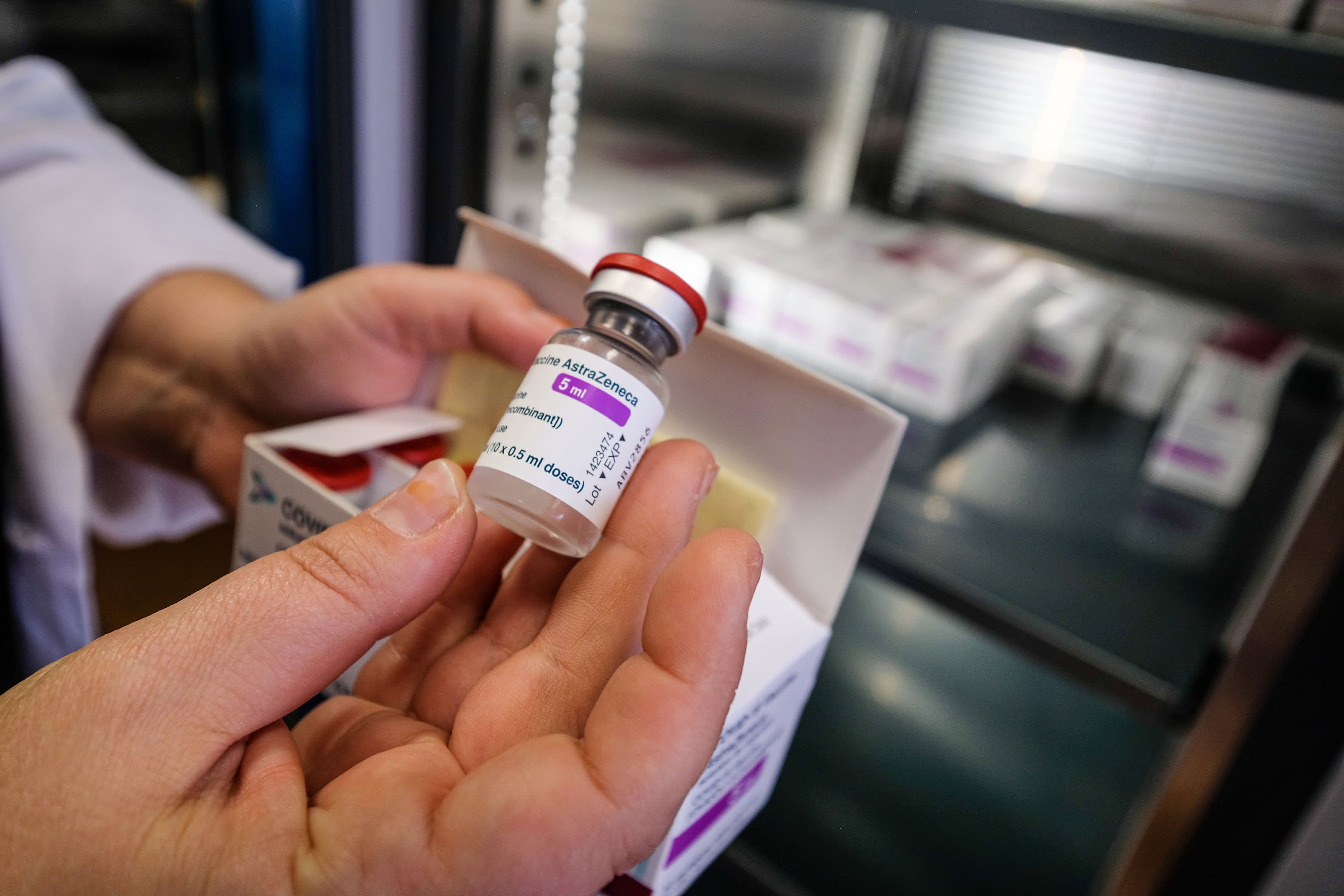
LONDON — Health experts say they are disappointed and confused by the flurry of suspensions of the coronavirus vaccine developed by AstraZeneca and the University of Oxford, warning there is not yet enough data to justify these decisions.
Sweden and Latvia on Tuesday joined a fast-growing list of European countries suspending the use of the vaccine as a precautionary measure following reports of blood clots. Germany, France, Italy and Spain on Monday said they would all stop administering the shot.
Other countries, such as Austria, have temporarily paused the use of certain batches of the Oxford-AstraZeneca vaccine. Thailand on Friday became the first Asian nation to halt the use of the shot over safety concerns.
The U.K., Canada and Australia — which are continuing to deploy the vaccine — are among some of the countries seeking to reassure citizens about its benefits.
The World Health Organization, Europe's drug regulator and the International Society on Thrombosis and Hemostasis have all recommended that countries continue to use the Oxford-AstraZeneca vaccine.
There are no signs yet of any data that really justify these decisions.Michael HeadSenior research fellow in Global Health at the University of Southampton
"The decisions by France, Germany and other countries look baffling," said Dr. Michael Head, senior research fellow in Global Health at the University of Southampton, U.K.
"The data we have suggests that numbers of adverse events related to blood clots are the same (and possibly, in fact lower) in vaccinated groups compared to unvaccinated populations," he continued.
"Halting a vaccine roll out during a pandemic has consequences. This results in delays in protecting people, and the potential for increased vaccine hesitancy, as a result of people who have seen the headlines and understandably become concerned. There are no signs yet of any data that really justify these decisions," Head added.
Experts at WHO will meet on Tuesday to review the safety of the shot.
The European Medicines Agency, which is also evaluating the safety of the drug, has said there is no indication that it is causing blood clots, adding that it believes the vaccine's benefits "continue to outweigh its risks."
What has AstraZeneca said?
More than 17 million people in the European Union and the U.K. have received a dose of the Oxford-AstraZeneca vaccine, with fewer than 40 cases of blood clots reported as of last week, AstraZeneca said in a statement.
The pharmaceutical giant said that across the EU and U.K. there had been 15 events of deep vein thrombosis and 22 events of pulmonary embolism reported among those vaccinated.
"This is much lower than would be expected to occur naturally in a general population of this size and is similar across other licensed COVID-19 vaccines," AstraZeneca said.
The EMA has also said that the data available so far showed that the number of blood clots in vaccinated people is no higher than that seen among the general population.
Europe's caution about the drug has compounded the woes of the region's ailing vaccination campaign and comes at a time when Germany's public health agency has warned that a third wave of coronavirus infections has already begun.
Dr. Stephen Griffin associate professor in the School of Medicine at the University of Leeds, said the news that many countries in Europe had suspended the rollout of the Oxford-AstraZeneca vaccine was "disappointing."
"Since many European countries are currently experiencing another resurgence of SARS-CoV2 infections and yet are lagging behind in terms of roll out, the importance of continuing the vaccination programmes cannot be underestimated, and the harm caused by depriving people of access to a vaccine will likely vastly outweigh even the worst case scenario if any link to the clotting disorders is eventually found," Griffin said.
"It should also be noted that nationwide gestures such as this are bound to fuel hesitancy, or more extreme anti-vaccine sentiment, further undermining the vaccination effort," he added.
How does the vaccine work?
The Oxford-AstraZeneca vaccine is a shot designed to prevent the coronavirus in people aged 18 and older. It is made up of an adenovirus that has been modified to contain the gene for making a protein from SARS-CoV-2, the virus that causes Covid-19. As such, the vaccine does not contain the virus and cannot cause Covid.
The most common side effects of the shot are typically mild or moderate and improve within a few days of vaccination.
Late-stage clinical trials found the AstraZeneca-Oxford shot to have an average efficacy of 70% in protecting against the virus.
"We are closely reviewing reports but the evidence available does not suggest the vaccine is the cause," said Dr. Phil Bryan, vaccines safety lead at the U.K.'s Medicines and Healthcare products Regulatory Agency.
"Blood clots can occur naturally and are not uncommon. More than 11 million doses of the AZ vaccine have now been administered across the UK, and the number of blood clots reported after having the vaccine is not greater than the number that would have occurred naturally in the vaccinated population," he continued.
"We are working closely with international counterparts in understanding the global safety experience of COVID-19 vaccines and on the rapid sharing of safety data and reports. People should still go and get their COVID-19 vaccine when asked to do so," Bryan said.
World - Latest - Google News
March 16, 2021 at 03:49PM
https://ift.tt/3eIARI5
Doctors baffled as countries suspend use of AstraZeneca vaccine over blood clot fears - CNBC
World - Latest - Google News
https://ift.tt/2SeTG7d
Bagikan Berita Ini














0 Response to "Doctors baffled as countries suspend use of AstraZeneca vaccine over blood clot fears - CNBC"
Post a Comment